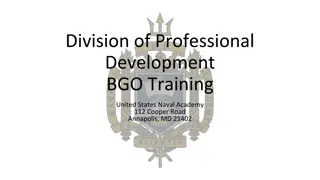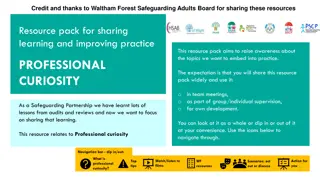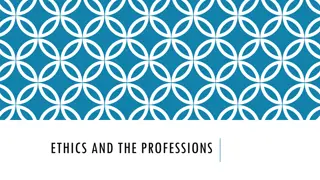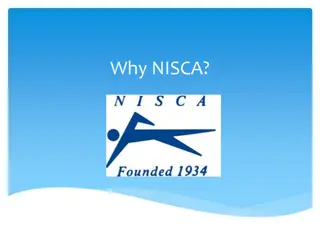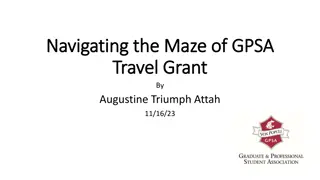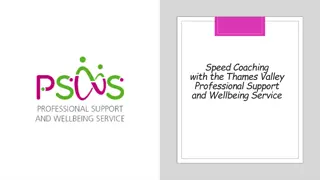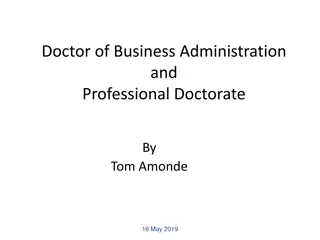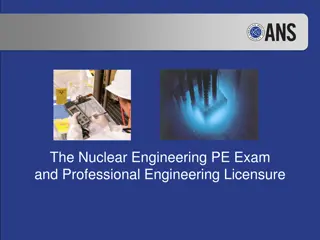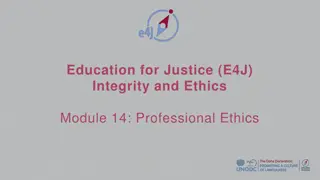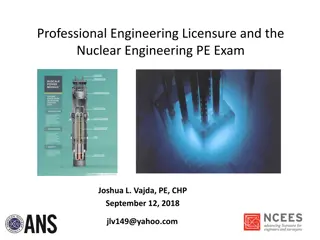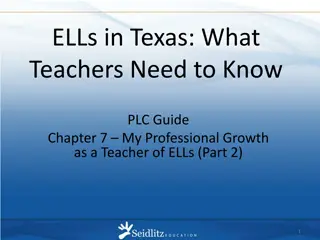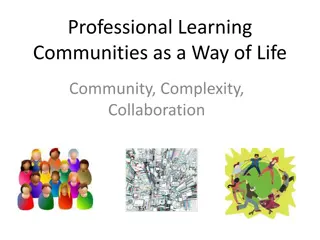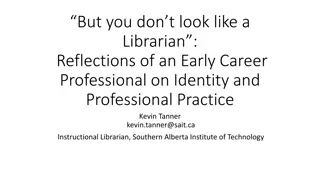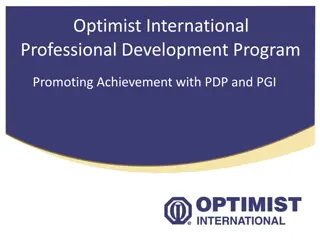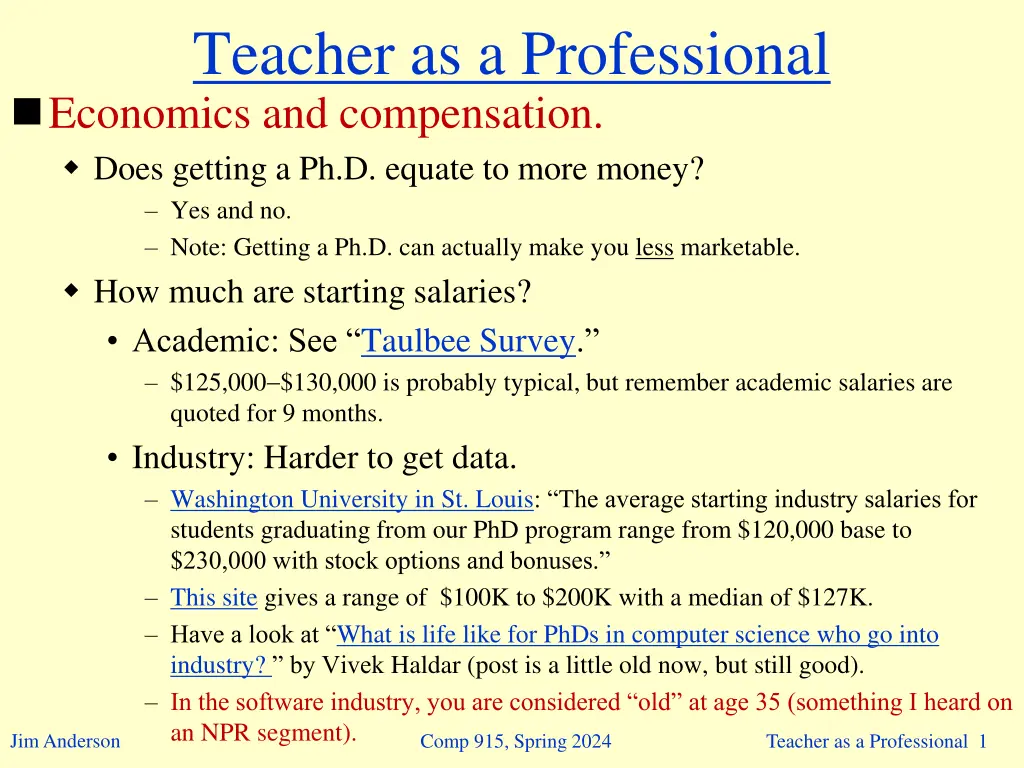
Professional Economics and Compensation Insights
Explore the impact of obtaining a Ph.D. in economics on salary prospects, with insights on starting salaries in academia and industry. Learn tips on job talks, interviewing strategies, and time management for success in the competitive professional landscape.
Download Presentation

Please find below an Image/Link to download the presentation.
The content on the website is provided AS IS for your information and personal use only. It may not be sold, licensed, or shared on other websites without obtaining consent from the author. If you encounter any issues during the download, it is possible that the publisher has removed the file from their server.
You are allowed to download the files provided on this website for personal or commercial use, subject to the condition that they are used lawfully. All files are the property of their respective owners.
The content on the website is provided AS IS for your information and personal use only. It may not be sold, licensed, or shared on other websites without obtaining consent from the author.
E N D
Presentation Transcript
Teacher as a Professional Economics and compensation. Does getting a Ph.D. equate to more money? Yes and no. Note: Getting a Ph.D. can actually make you less marketable. How much are starting salaries? Academic: See Taulbee Survey. $125,000 $130,000 is probably typical, but remember academic salaries are quoted for 9 months. Industry: Harder to get data. Washington University in St. Louis: The average starting industry salaries for students graduating from our PhD program range from $120,000 base to $230,000 with stock options and bonuses. This site gives a range of $100K to $200K with a median of $127K. Have a look at What is life like for PhDs in computer science who go into industry? by Vivek Haldar (post is a little old now, but still good). In the software industry, you are considered old at age 35 (something I heard on an NPR segment). Comp 915, Spring 2024 Jim Anderson Teacher as a Professional 1
Teacher as a Professional (Contd) Academic marketplace. Again, see Taulbee Survey. Job talks. Some advice: Attend them here. Make notes about what works and what doesn t. Practice, practice, practice. Your advisor may be able to arrange for you to practice it on the road. Record it and watch the recording. Your vision for where you want to take the world is more important than technical details. Enthusiasm, enthusiasm, enthusiasm. Also, be grateful, courteous, etc. etc. Think (and relax) before answering questions. Comp 915, Spring 2024 Jim Anderson Teacher as a Professional 2
Teacher as a Professional (Contd) Interviewing. Some advice: Academia: Study up and know the department before the interview. Have some ideas about teaching and new courses to create. Typical question: What will your first proposal be about? It s the vision thing again. Make sure you can explain your vision. Industry: Study up on them too and know how they make their money. Find out about their interviewing style and testing questions. You can probably get lots of information from former students and by Googling. Note: They may only really care how well you can code. Jim Anderson Teacher as a Professional 3 Comp 915, Spring 2024
Teacher as a Professional (Contd) Interviewing (cont d): Both: Relax. Try to enjoy the experience and exchange of ideas. Silence is not golden: Always have something to say (e.g., even if it s asking about the local schools for the umpteenth time). Always remember to be polite, gracious, etc. Publish or perish (my take): Most schools tell you they care (more or less) equally about research, teaching, and service. To be honest, I think most schools really care about funding, papers published, students graduated, and what prominent people think of you. Comp 915, Spring 2024 Jim Anderson Teacher as a Professional 4
Teacher as a Professional (Contd) Time budgeting (my take): I think most people have at most 50 good hours of work in them per week. Beyond that, you re really just wasting your time. Obvious exception: You can kick it up a notch for short spurts, e.g., conference deadlines, proposal deadlines, etc. A 70-hour week now and then is probably inevitable, but you can t sustain this. And why would you want to? My personal time budgeting method: Shortest-job-first plus work steadily on long jobs to avoid last- minute cramming. Jim Anderson Teacher as a Professional 5 Comp 915, Spring 2024
Teacher as a Professional (Contd) Professional ethics: Your reputation means everything. Don t take credit for things you didn t do. Take conflicts of interest seriously. Try to be as fair as possible in reviewing the work of others. Reviewing tip: Make your comments about the paper, the experiments, the results, etc., and not about the authors. Treat others how you would want to be treated. In carrying out your teaching duties, give your students their money s worth. You get the idea. Jim Anderson Teacher as a Professional 6 Comp 915, Spring 2024


